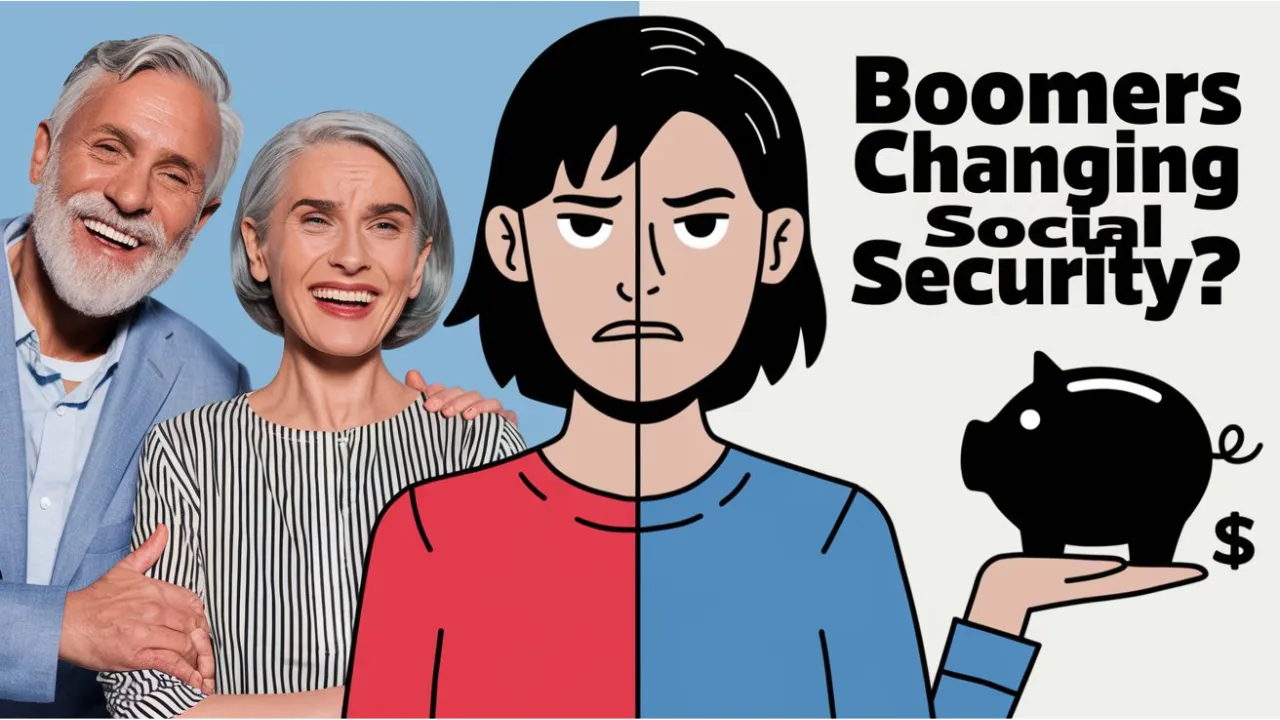Baby Boomers Social Security trends are shifting the landscape of retirement benefits in ways that affect millions of Americans. As the baby boomer generation ages into retirement, the pressure they place on Social Security is forcing significant changes that future retirees need to understand.
In this article, we will explore how the retirement of baby boomers is transforming Social Security. You will learn how their numbers influence the program, what knowledge gaps exist among generations, why many are uncertain about when to claim benefits, and the common misconceptions that could impact financial decisions. This guide will provide you with the key information you need to navigate the evolving system.
Overview: Baby Boomers Driving Social Security Changes
| Key Aspect | Details |
| Retirement Surge | Increased number of baby boomers retiring, higher demand for Social Security benefits |
| Knowledge Gaps | Younger generations (millennials, Gen X) less informed than baby boomers |
| Unclear Claiming Strategies | Over half of Americans unsure about the ideal time to claim benefits |
| Concerns About Viability | Majority worried about Social Security’s long-term sustainability |
| Misunderstandings | Misconceptions about spousal benefits, taxation, early claims |
| Need for Education | Financial awareness crucial for retirement stability |
Baby Boomers Social Security
Baby Boomers Social Security discussions have become more relevant than ever. Born between 1946 and 1964, this generation is now retiring in record numbers, and as they exit the workforce, the number of people relying on Social Security continues to rise. This growing demand is causing financial strain on the program, making sustainability a pressing concern.
With longer life expectancies and increased benefit claims, baby boomers are altering the way Social Security operates. The financial pressure from this generation may result in future changes to how benefits are calculated, when they can be claimed, and how the program is funded.
Knowledge Gaps in Social Security Across Generations
One of the key insights from recent research is the clear knowledge gap among younger generations regarding Baby Boomers Social Security. While many baby boomers have a firm understanding of how Social Security works, millennials and Generation X show limited awareness of the program’s rules and structure.
Surveys show that around 60% of millennials and 51% of Gen X participants admit to having little understanding of Social Security. In contrast, only about 23% of baby boomers feel the same way. This suggests that those closer to retirement have taken steps to educate themselves, while younger workers may not yet see Social Security as an immediate priority.
This lack of knowledge could result in missed financial opportunities. Without a clear understanding, individuals may overlook strategies that could maximize their benefits in retirement.
Uncertainty About When to Claim Social Security Benefits
Another common issue is uncertainty around the timing of claiming benefits. Deciding when to start drawing Social Security is one of the most crucial decisions retirees face, yet many people remain unclear about the best strategy.
More than half of Americans report not having a solid plan for when to claim Social Security. Among millennials and Gen Xers, this uncertainty is even more pronounced, with about 57% and 56% respectively unsure of the ideal timing. Surprisingly, even among baby boomers, nearly a quarter admit to lacking a clear strategy.
The timing matters because claiming benefits before full retirement age results in lower monthly payments, while waiting can lead to increased benefits. Without a clear plan, many individuals risk receiving less over their lifetime.
Concerns About Social Security’s Long-Term Viability
A major worry among Americans centers on whether Social Security will remain reliable over the long term. As Baby Boomers Social Security usage increases, so do concerns about the system’s ability to sustain itself.
Nearly 57% of surveyed individuals express fears that Social Security might not be available throughout their retirement years. These concerns stem from the sheer number of retirees, combined with questions about the program’s financial reserves.
This uncertainty is prompting many to reconsider relying solely on Social Security for their retirement income. Instead, more people are exploring alternative sources of income to ensure they maintain their lifestyle after retiring.
Common Misconceptions About Social Security
Misunderstandings about how Baby Boomers Social Security works are common and can lead to financial missteps. Several incorrect beliefs persist, potentially impacting retirees’ financial well-being.
A widespread misconception involves spousal benefits. Many people mistakenly think that when one spouse passes away, the surviving partner will continue receiving both benefits. In reality, the surviving spouse only receives the higher of the two benefits, not both.
Another common misunderstanding relates to taxes. Many do not realize that Social Security benefits can be taxable based on total income, meaning retirees may owe federal taxes depending on their earnings.
Additionally, those who claim benefits before reaching full retirement age and continue working might face reductions in their benefits. Income limits can trigger a clawback of some of the Social Security payments, yet many are unaware of this rule.
These misconceptions highlight the importance of understanding Social Security regulations to avoid surprises and maximize retirement income.
Importance of Financial Education and Awareness
With Baby Boomers Social Security shaping the future of retirement benefits, it is clear that financial education is more important than ever. Having the right information can mean the difference between a stable retirement and unexpected financial difficulties.
The lack of knowledge among younger generations shows how crucial it is to learn about Social Security well before retirement age. Becoming informed about benefit rules, taxation, and timing strategies empowers individuals to make smarter decisions.
Financial institutions, advisors, and public agencies also play a key role. By providing accurate, easy-to-understand resources, they can help bridge knowledge gaps and ensure people are better prepared for the realities of retirement.
Conclusion
The influence of Baby Boomers Social Security is undeniable. As millions of baby boomers retire, they are driving significant changes in how Social Security functions, raising important questions about its future stability. Knowledge gaps among younger generations, uncertainty about benefit timing, and persistent misconceptions only add to the challenge.
To navigate these changes, it is essential to stay informed and proactive. Whether you’re planning your own retirement or guiding younger family members, understanding how Social Security is evolving will help you make sound financial decisions.
If you found this article helpful or have questions about your retirement plans, feel free to leave a comment below. Explore more of our content to stay updated on Social Security and financial planning tips.
FAQs
What changes are baby boomers causing in Social Security?
Baby boomers are retiring in large numbers, leading to increased demand for Social Security benefits and placing financial strain on the system.
Why do millennials and Gen X have limited knowledge of Social Security?
Younger generations often focus less on retirement planning early in life, resulting in less familiarity with Social Security rules and benefits.
When is the best time to claim Social Security benefits?
The best time varies for each person, but generally waiting until full retirement age or later increases monthly benefits.
Can Social Security benefits be taxed?
Yes, depending on your total income, a portion of Social Security benefits may be subject to federal taxes.
Do surviving spouses receive both their own and their deceased spouse’s benefits?
No, the surviving spouse will only receive one benefit, usually the higher of the two.













